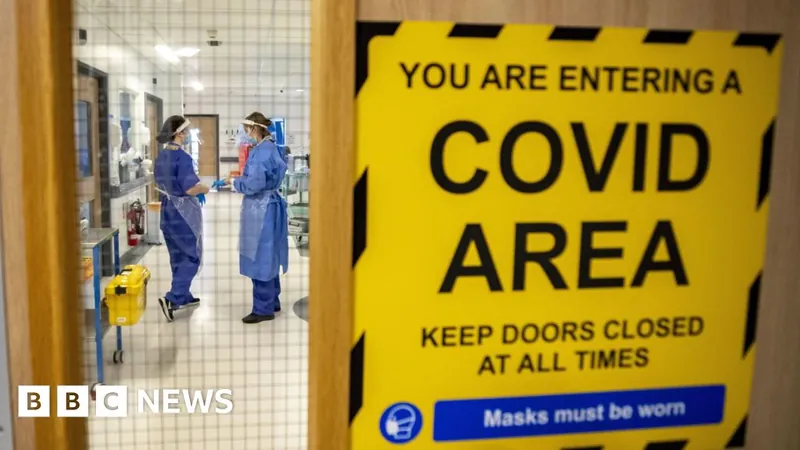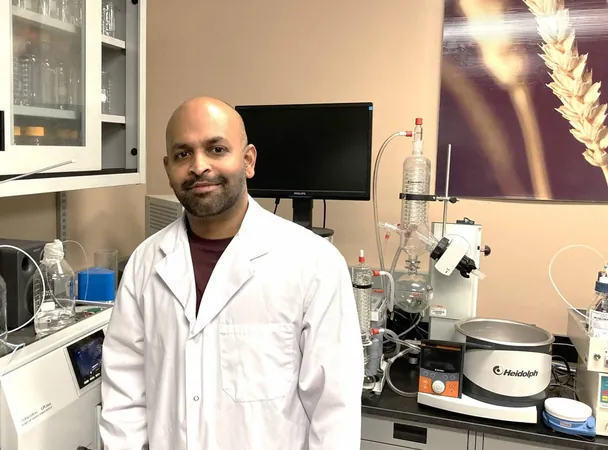
Revolutionary Trial at University of Plymouth Seeks to Conquer Long Covid Symptoms
2025-04-13
Author: Wei
A Pioneering Effort Against Long Covid
Researchers at the University of Plymouth are embarking on a groundbreaking project aimed at uncovering effective treatments for the troubling symptoms of long Covid.
Joining Forces in the Fight Against Illness
Part of the ambitious ERASE long Covid initiative, led by the University of Derby and launched in September 2024, this research is crucial as over 144 million people around the globe endure the relentless grip of long Covid.
Symptoms That Disrupt Lives
Individuals impacted by long Covid face debilitating issues such as extreme fatigue, breathlessness, heart palpitations, and the infamous brain fog, which drastically affect their quality of life.
Exploring Potential Relief with Anti-Viral Medication
In a new twist, the University of Plymouth is testing anti-viral medication, typically administered to hospital patients with Covid-19, on 72 individuals suffering from long Covid. This study aims to determine if this treatment could alleviate their persistent symptoms.
Why This Study Matters
Crucially, many Covid-19 survivors never reached the hospital, leaving them without access to these potentially life-changing medications. The study, managed by the Peninsula Clinical Trials Unit (PenCTU), will fill this gap and explore whether these anti-viral treatments can also benefit those grappling with long Covid.
A Call to Action Over A Growing Crisis
Mark Faghy, the project's lead, emphasizes the severe impact of long Covid on daily life. "For many, it’s absolutely debilitating, disrupting work, family responsibilities, and social interactions. Millions are affected worldwide, and there are currently no verified treatments available. Five years into the pandemic, long Covid remains a formidable challenge for health systems and society, which is precisely why our research is so critical."
A Ray of Hope in Dark Times
As researchers strive to find answers, the University of Plymouth's bold approach offers hope to millions suffering in silence. The outcome of this trial may pave the way for an effective treatment that could restore quality of life and normalcy for countless individuals.



 Brasil (PT)
Brasil (PT)
 Canada (EN)
Canada (EN)
 Chile (ES)
Chile (ES)
 Česko (CS)
Česko (CS)
 대한민국 (KO)
대한민국 (KO)
 España (ES)
España (ES)
 France (FR)
France (FR)
 Hong Kong (EN)
Hong Kong (EN)
 Italia (IT)
Italia (IT)
 日本 (JA)
日本 (JA)
 Magyarország (HU)
Magyarország (HU)
 Norge (NO)
Norge (NO)
 Polska (PL)
Polska (PL)
 Schweiz (DE)
Schweiz (DE)
 Singapore (EN)
Singapore (EN)
 Sverige (SV)
Sverige (SV)
 Suomi (FI)
Suomi (FI)
 Türkiye (TR)
Türkiye (TR)
 الإمارات العربية المتحدة (AR)
الإمارات العربية المتحدة (AR)